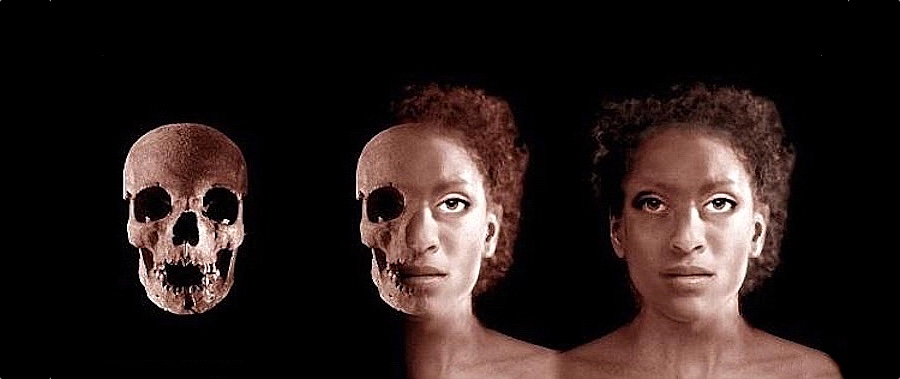 People hear Anglo Saxon and assume it means a genetically white person living in any time period from the end of the Roman occupation of Britain to our own. Some use the term Anglo Saxon as code for exclusive whiteness, very exclusive as in a whites only but only certain whites kind of way, but this was never true of the actual historical people who have been labeled the original Anglo Saxons. There was no such white homogeneity in the medieval world. Nor was there a population who thought of themselves as Anglo Saxon. Dig up the people who lived in Britain during and after the Romans and before the Norman invasion and ask them. They’ll tell you. The bones in the ground speak the truth: there was no population replacement, Romano Celts out and Germanic invaders in. There was no wave of mass immigration from an entirely white culture. This did not happen. … More
People hear Anglo Saxon and assume it means a genetically white person living in any time period from the end of the Roman occupation of Britain to our own. Some use the term Anglo Saxon as code for exclusive whiteness, very exclusive as in a whites only but only certain whites kind of way, but this was never true of the actual historical people who have been labeled the original Anglo Saxons. There was no such white homogeneity in the medieval world. Nor was there a population who thought of themselves as Anglo Saxon. Dig up the people who lived in Britain during and after the Romans and before the Norman invasion and ask them. They’ll tell you. The bones in the ground speak the truth: there was no population replacement, Romano Celts out and Germanic invaders in. There was no wave of mass immigration from an entirely white culture. This did not happen. … More
Tag Archives: Past
P is for Poetry
 Old English poetry was performed, probably sung, for purposes beyond mere entertainment. The Germanic tribes Tacitus visited at the end of the first century would prep for battle by barding, which he called “a peculiar kind of verse” sung to stimulate their courage and to divine the outcome of the coming fight through the quality of the sound itself. Tacitus tells us about these peculiar verses almost immediately in his report back to the empire, so you know it was impressive. It would be. Imagine it: he says the people would put their battle shields to their mouths, perhaps in them, and sing. A shield as a musical instrument. Their favorite sounds were “a harsh piercing note and a broken roar,” which “does not seem so much an articulate song, as the wild chorus of valor.” What were the words? Were they the names of the gods? An appeal for their protection? A … More
Old English poetry was performed, probably sung, for purposes beyond mere entertainment. The Germanic tribes Tacitus visited at the end of the first century would prep for battle by barding, which he called “a peculiar kind of verse” sung to stimulate their courage and to divine the outcome of the coming fight through the quality of the sound itself. Tacitus tells us about these peculiar verses almost immediately in his report back to the empire, so you know it was impressive. It would be. Imagine it: he says the people would put their battle shields to their mouths, perhaps in them, and sing. A shield as a musical instrument. Their favorite sounds were “a harsh piercing note and a broken roar,” which “does not seem so much an articulate song, as the wild chorus of valor.” What were the words? Were they the names of the gods? An appeal for their protection? A … More
Translating Tiw
 The Rune Poem says Tiw is one of the signs, a tacn, a token. This is the first clue in the riddle. A sign is a clue to something as well; signs symbolize in shorthand something else. A letter in an alphabet is a sign that means a sound and sometimes a whole word. The color of a light hanging over a road is a sign standing as evidence of broader meanings, covenants of mutual trust, expectations of behavior. And signs can be signs for signs, like these: 💰, 🐮, 🌹🌵, 😉, 🛣, 🔦, 🎁, 🤑, ⛈, 💔🆘👂, ❄️, 🌱, 🌲🪦, 🎮, 🧬, 🌅, 🪧⭐⚖, 🌳🔮, 🐴, 🫂🪦, 🌊, 🛒👋, 🏠, ☀, 🌳🌰⛵, 🌳😇👊, 🏹, 🦫, 🪦. These are signs in nested levels of scale. … More
The Rune Poem says Tiw is one of the signs, a tacn, a token. This is the first clue in the riddle. A sign is a clue to something as well; signs symbolize in shorthand something else. A letter in an alphabet is a sign that means a sound and sometimes a whole word. The color of a light hanging over a road is a sign standing as evidence of broader meanings, covenants of mutual trust, expectations of behavior. And signs can be signs for signs, like these: 💰, 🐮, 🌹🌵, 😉, 🛣, 🔦, 🎁, 🤑, ⛈, 💔🆘👂, ❄️, 🌱, 🌲🪦, 🎮, 🧬, 🌅, 🪧⭐⚖, 🌳🔮, 🐴, 🫂🪦, 🌊, 🛒👋, 🏠, ☀, 🌳🌰⛵, 🌳😇👊, 🏹, 🦫, 🪦. These are signs in nested levels of scale. … More
T is for Thincso
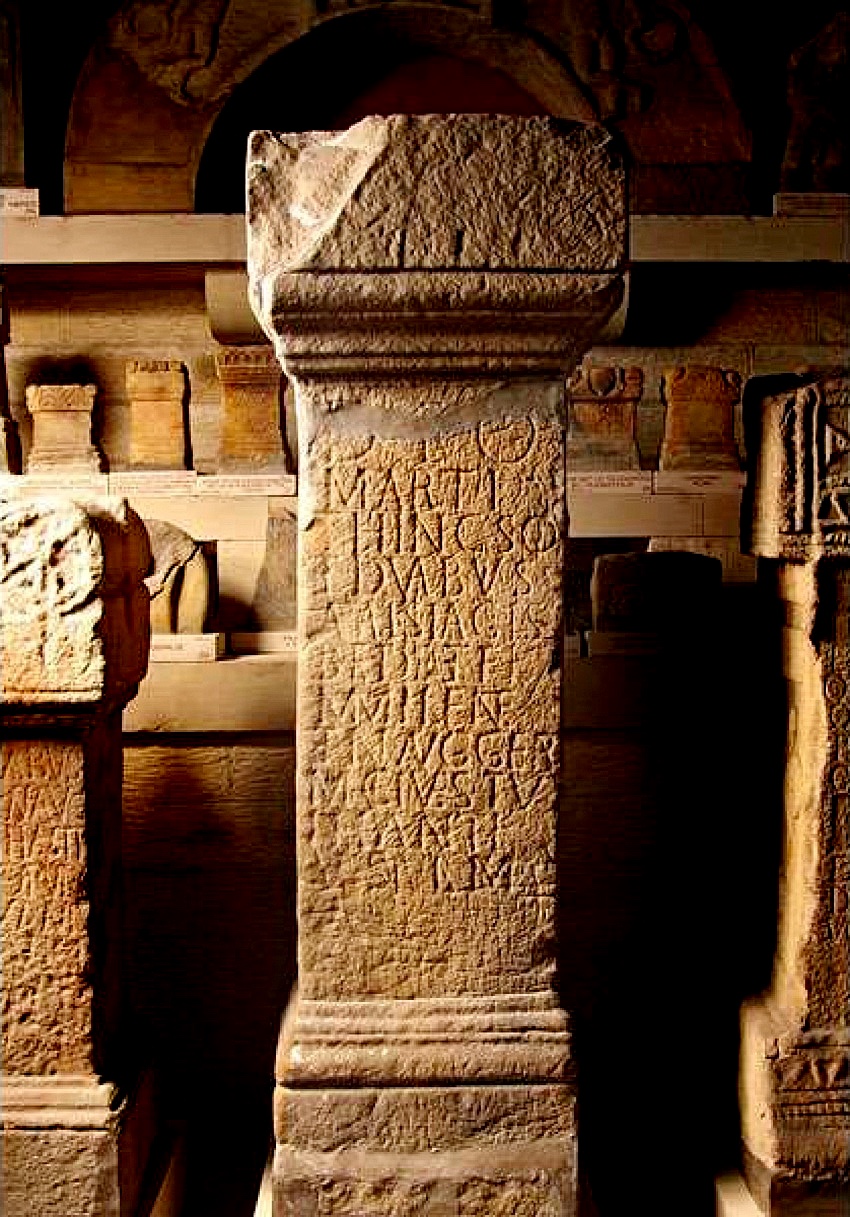 During the height of the Roman occupation of Britain, Britannia was as Roman as anywhere else in the empire: filled with flourishing walled market towns distributing goods to and from all the other parts of the Mediterranean world, the culture a mix of Roman and local, all gods welcome. This was the secret sauce in the Roman recipe for empire, everybody got to keep their deities. Delicious. Some gods were adopted by the soldiers and traveling sales teams who moved the most from place to place, others got yoked to a Roman deity, two gods pulling the weight for one: interpretatio Romana Tacitus called this practice whilst naming a pair of gods living in a sacred grove somewhere along the Oder River between Germany and Poland. According to the Roman interpretation these deities were Castor and Pollux but maybe they were some version of Nerþus who was maybe Ing who maybe became Freyr and … More
During the height of the Roman occupation of Britain, Britannia was as Roman as anywhere else in the empire: filled with flourishing walled market towns distributing goods to and from all the other parts of the Mediterranean world, the culture a mix of Roman and local, all gods welcome. This was the secret sauce in the Roman recipe for empire, everybody got to keep their deities. Delicious. Some gods were adopted by the soldiers and traveling sales teams who moved the most from place to place, others got yoked to a Roman deity, two gods pulling the weight for one: interpretatio Romana Tacitus called this practice whilst naming a pair of gods living in a sacred grove somewhere along the Oder River between Germany and Poland. According to the Roman interpretation these deities were Castor and Pollux but maybe they were some version of Nerþus who was maybe Ing who maybe became Freyr and … More
Kings
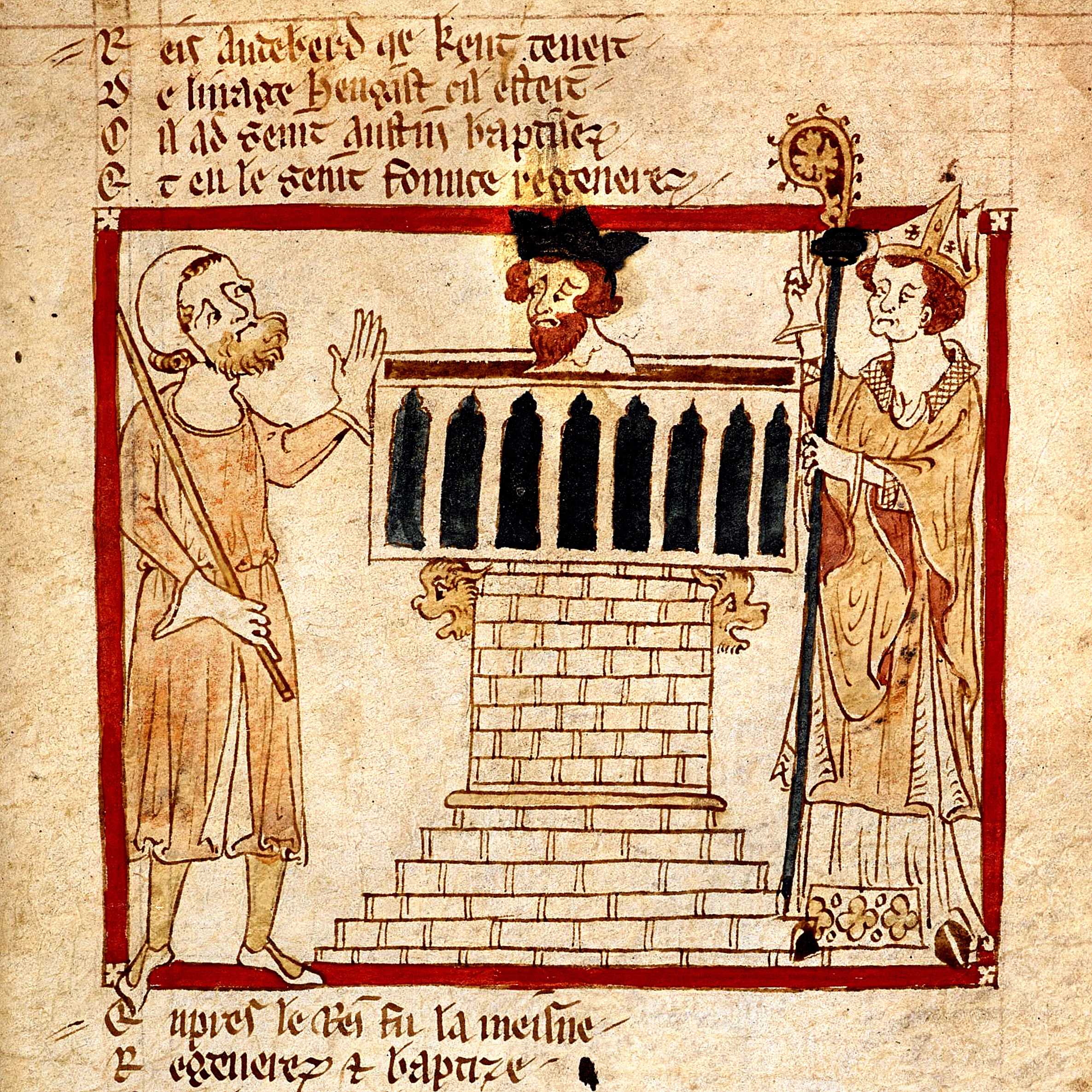 The Rune poem names two gods: Tiw and Ing. Three if you count Os which means god and describes Odin. If we set aside all the sacred trees, and we shouldn’t, we still have one more god mention: the holy king of heaven in the Year stanza, who must be the Christian god, unnamed. This Christian incursion into a poem full of non Christian deities, two named right out loud in answer to their stanza riddles, sometimes poses a different kind of riddle for Christian readers and translators. Perhaps duty bound to exalt their own, they often determine this is a Christian poem written by a Christian poet who would never allow heaven’s king to share an equal stage with other gods. This was a preference undoubtedly popular amongst Christian poets writing in Old English back in the day, so I can see the impulse. But I am here to encourage the … More
The Rune poem names two gods: Tiw and Ing. Three if you count Os which means god and describes Odin. If we set aside all the sacred trees, and we shouldn’t, we still have one more god mention: the holy king of heaven in the Year stanza, who must be the Christian god, unnamed. This Christian incursion into a poem full of non Christian deities, two named right out loud in answer to their stanza riddles, sometimes poses a different kind of riddle for Christian readers and translators. Perhaps duty bound to exalt their own, they often determine this is a Christian poem written by a Christian poet who would never allow heaven’s king to share an equal stage with other gods. This was a preference undoubtedly popular amongst Christian poets writing in Old English back in the day, so I can see the impulse. But I am here to encourage the … More
♂︎
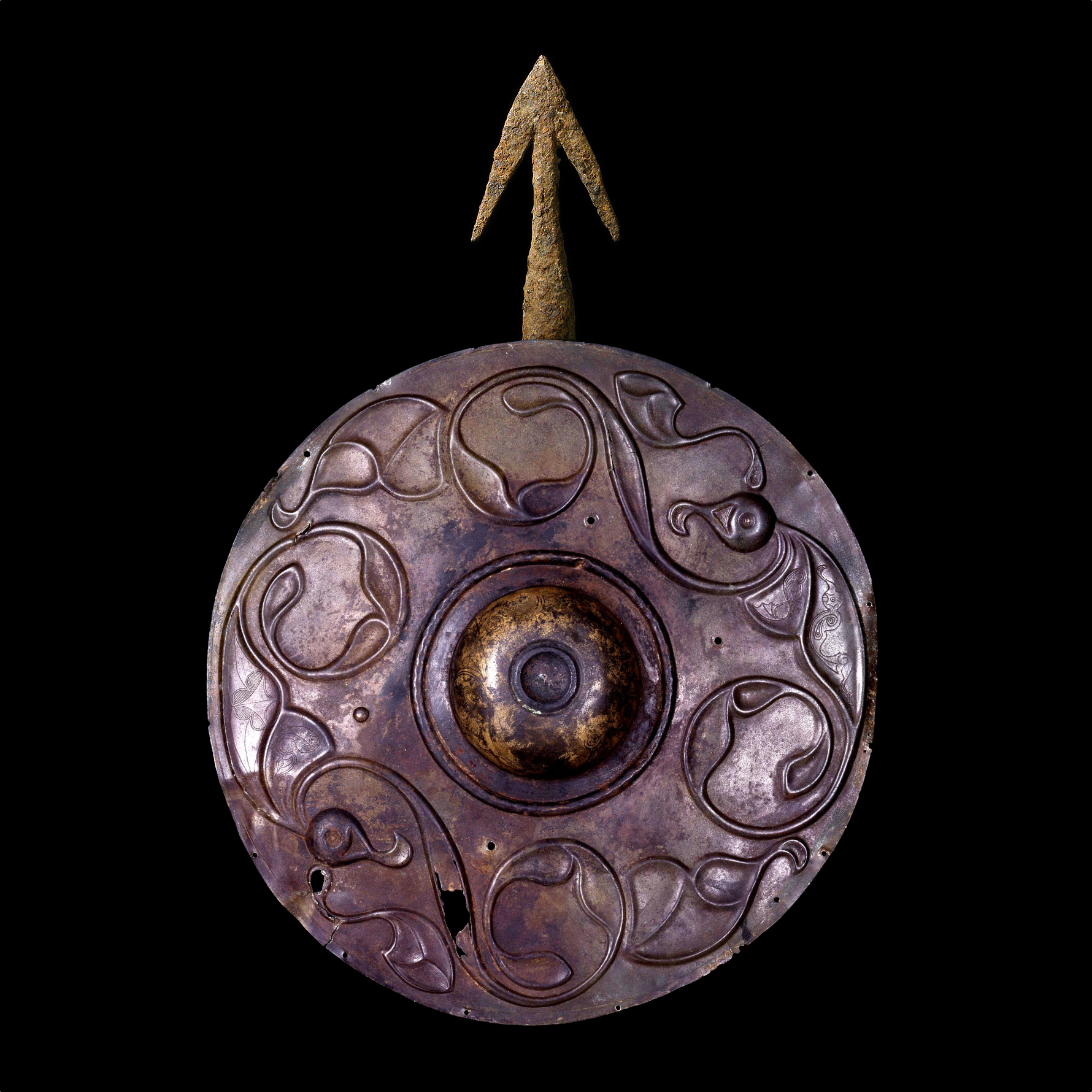 Mars and Tiw share a day. They might also share a symbol: ♂︎ ᛏ. The earliest symbols for Mars the planet were of a pointed spear, or a spear with a shield drawn as a circle with a line running through it. We still use a shield and spear to mean Mars. He is a warrior like Tiw, both recognizable by their weapons, forever on a journey over the obscurity of night.
Mars and Tiw share a day. They might also share a symbol: ♂︎ ᛏ. The earliest symbols for Mars the planet were of a pointed spear, or a spear with a shield drawn as a circle with a line running through it. We still use a shield and spear to mean Mars. He is a warrior like Tiw, both recognizable by their weapons, forever on a journey over the obscurity of night.
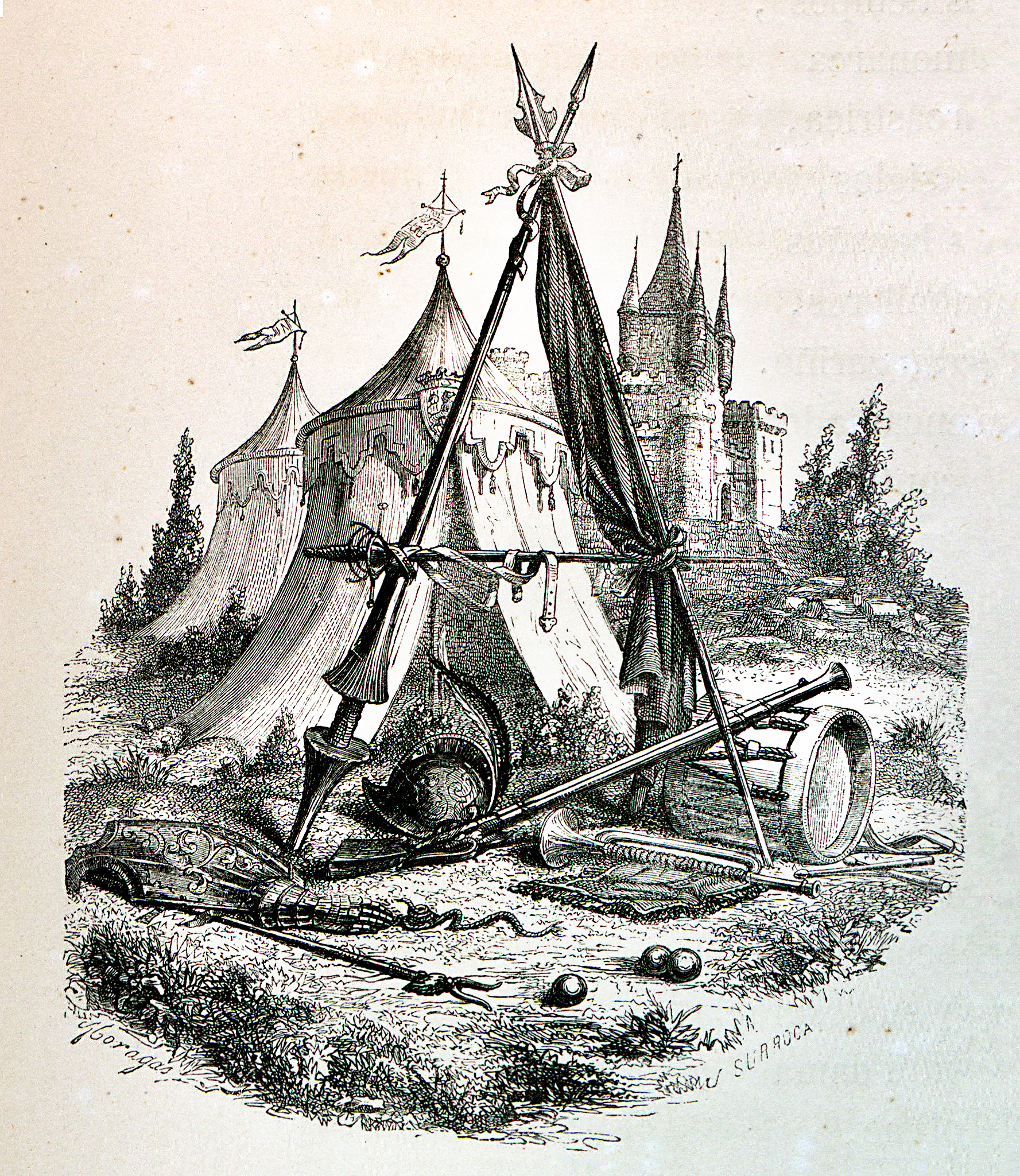
Eo is for Eorl
 An eorl is an earl, a noble person, sometimes a relative of the king, who acts as a local governor within a king’s domain. Eorl is the same word as the Old Norse jarl, meaning a hereditary chieftain, then later a noble person holding a rank just under the king. The eorl and the jarl are in charge of vast lands and lots of people. In Britain, before there were earls or kings, the Romans ran the place and for a brief moment ran the entire Roman empire from Britain until they abandoned it around the year 410, leaving behind a population without a stable government and who still saw themselves as Roman. When a government packs up and leaves they don’t just shut off the lights. Within the next century and a half, the people organized themselves into a government that looked much like the old one, establishing kingdoms with laws governed regionally … More
An eorl is an earl, a noble person, sometimes a relative of the king, who acts as a local governor within a king’s domain. Eorl is the same word as the Old Norse jarl, meaning a hereditary chieftain, then later a noble person holding a rank just under the king. The eorl and the jarl are in charge of vast lands and lots of people. In Britain, before there were earls or kings, the Romans ran the place and for a brief moment ran the entire Roman empire from Britain until they abandoned it around the year 410, leaving behind a population without a stable government and who still saw themselves as Roman. When a government packs up and leaves they don’t just shut off the lights. Within the next century and a half, the people organized themselves into a government that looked much like the old one, establishing kingdoms with laws governed regionally … More
War and Peace
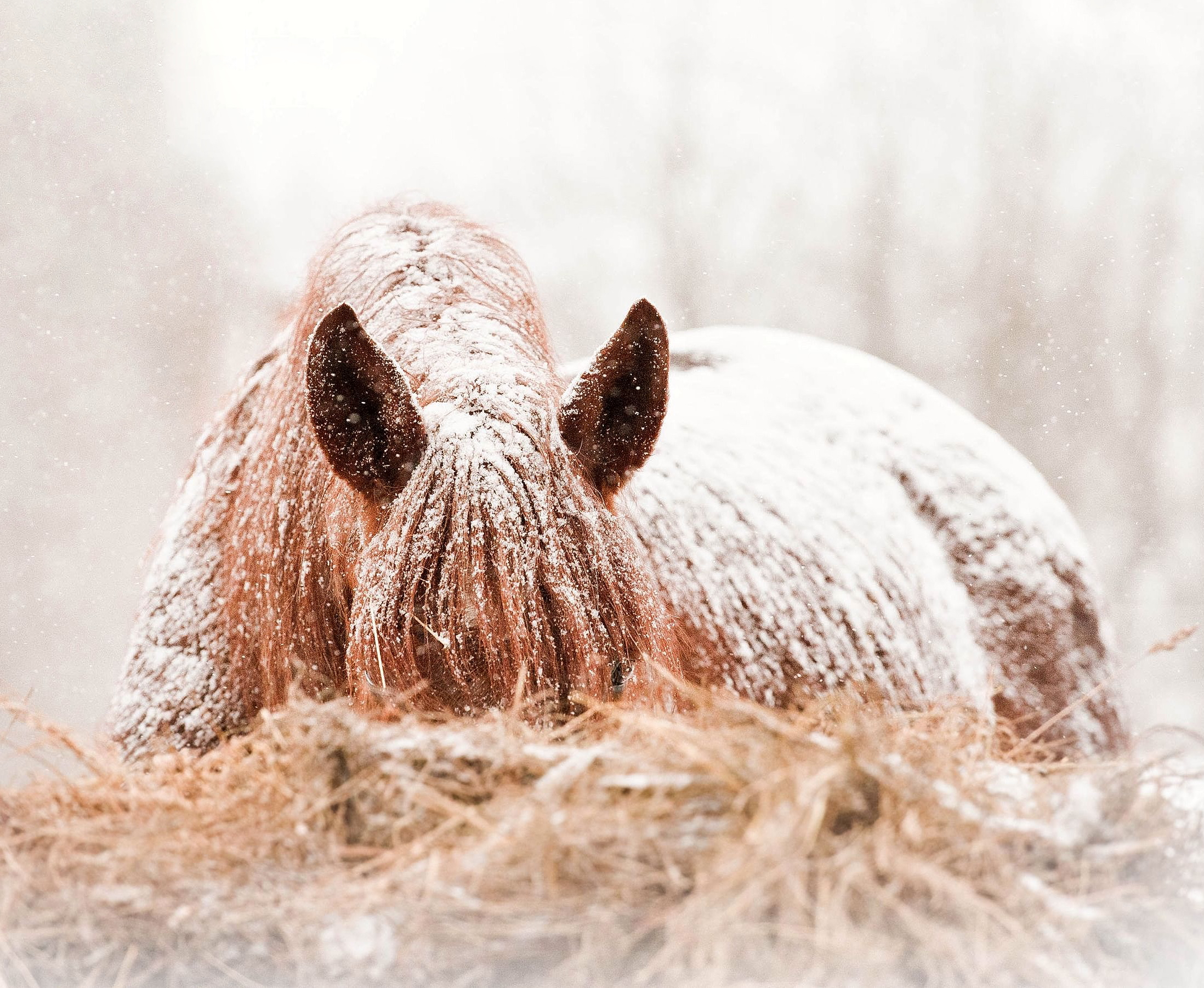 During the time of the Rune Poem, a properly kitted warrior owned a decent war horse to take to battle. These were bigger horses than the usual so they could handle a person wearing heavy armor, and they could even bite and fight with their hooves. With the right war horse, you can be unstoppable. Almost. What can stop a war horse? Ice. Ice is brutal for horse hooves. It can ball up under their feet until they are teetering on their own personal ice cubes. Have you ever fallen on ice? That’s not a soft landing. A horse can easily slip and break a leg on the frozen dips and grooves in a road, and if they fall right through a frozen lake or river good luck getting them back out. Have fun with that. A war horse, large and powerful, formidable in battle, is handily defeated by ice.
During the time of the Rune Poem, a properly kitted warrior owned a decent war horse to take to battle. These were bigger horses than the usual so they could handle a person wearing heavy armor, and they could even bite and fight with their hooves. With the right war horse, you can be unstoppable. Almost. What can stop a war horse? Ice. Ice is brutal for horse hooves. It can ball up under their feet until they are teetering on their own personal ice cubes. Have you ever fallen on ice? That’s not a soft landing. A horse can easily slip and break a leg on the frozen dips and grooves in a road, and if they fall right through a frozen lake or river good luck getting them back out. Have fun with that. A war horse, large and powerful, formidable in battle, is handily defeated by ice.
How to Listen to a Horse
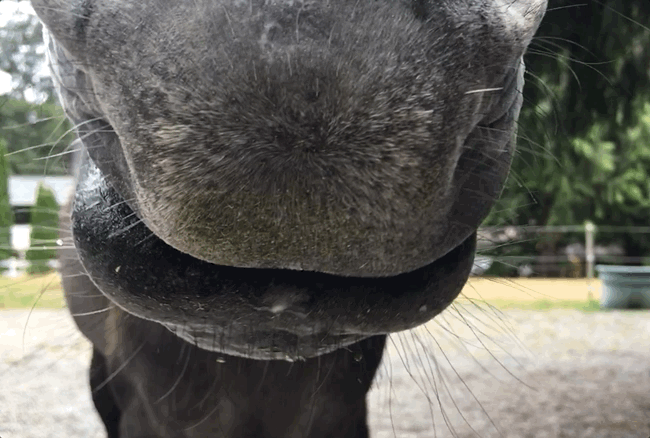 Publius Cornelius Tacitus
Publius Cornelius Tacitus
Ingaevones Territory
Year 98 of the New Calendar
Gnaeus Julius Agricola
Governor, Britannia, ret.
Dearest Father in Law,
How are you, I am fine. Julia sends her love. I am still in Germania, moving in the direction of Gaul, separated from this place by rivers, mountains, and mutual dread. This is a land rude in its surface, rigorous in its climate, cheerless to every beholder and cultivator.
Today I observed the practice of conjuring, which one cannot avoid as no people are more addicted to divination by omens and lots. Of their methods, some are familiar and civilized for instance auguring from the sounds and flights of birds, others prove most unnatural, such as deriving admonitions and presages from horses. These are the omens they deem most important:
When a horse neighs, the people foresee a meeting or gathering, of which they sit to many, most often fully armed. If the … More
Translating Ing
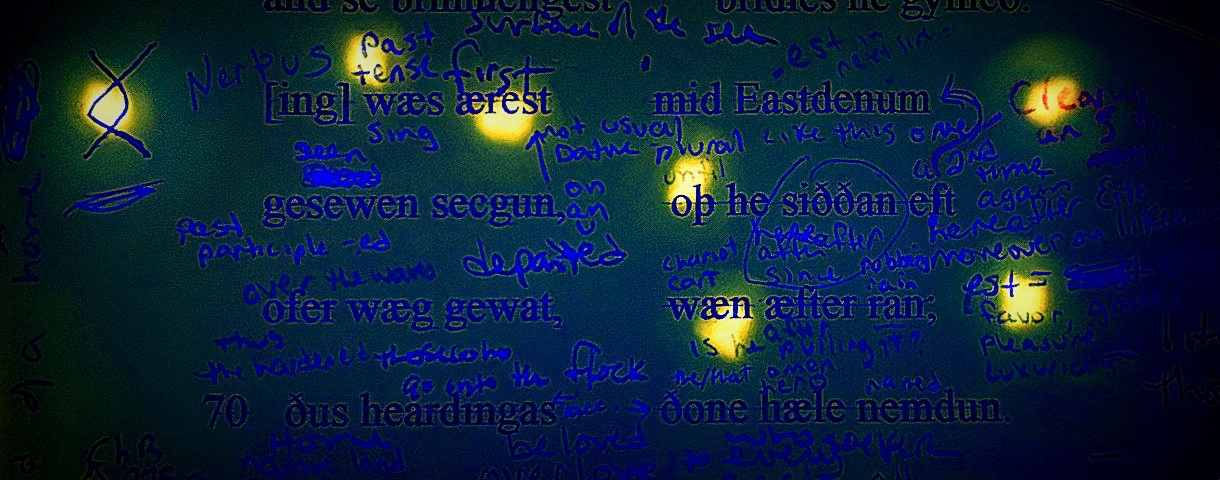 Ing is a mystery. Who is Ing? Where did he go? Why did he leave? We don’t know. You know who knows? The Rune Poem knows: the Rune Poem has the only specific intel we’ve got on Ing.
Ing is a mystery. Who is Ing? Where did he go? Why did he leave? We don’t know. You know who knows? The Rune Poem knows: the Rune Poem has the only specific intel we’ve got on Ing.
Case File: Ing
Clue: Ing was first among the East Danes. Where are these East Danes? The Rune Poem predates the Viking expansion (973-1066), so there’s only one place to look for Danes: modern Denmark and southern Sweden plus the coasts and islands thereabout. The East Danes lived in the Southern Sweden and Zealand half of things, where you can find plenty of people named after Ing: Inge Inga Ingmar Ingrid, living in places like Ingegerd, and Ingeborg. What’s Ing doing in the Old English Rune Poem? His people traveled. Just west of Denmark across the north sea to Northumbria there are also plenty Ings (Inglby Ingoe Ingram Ingham). He’s left a forest of family trees … More
Ing is for Nerþus
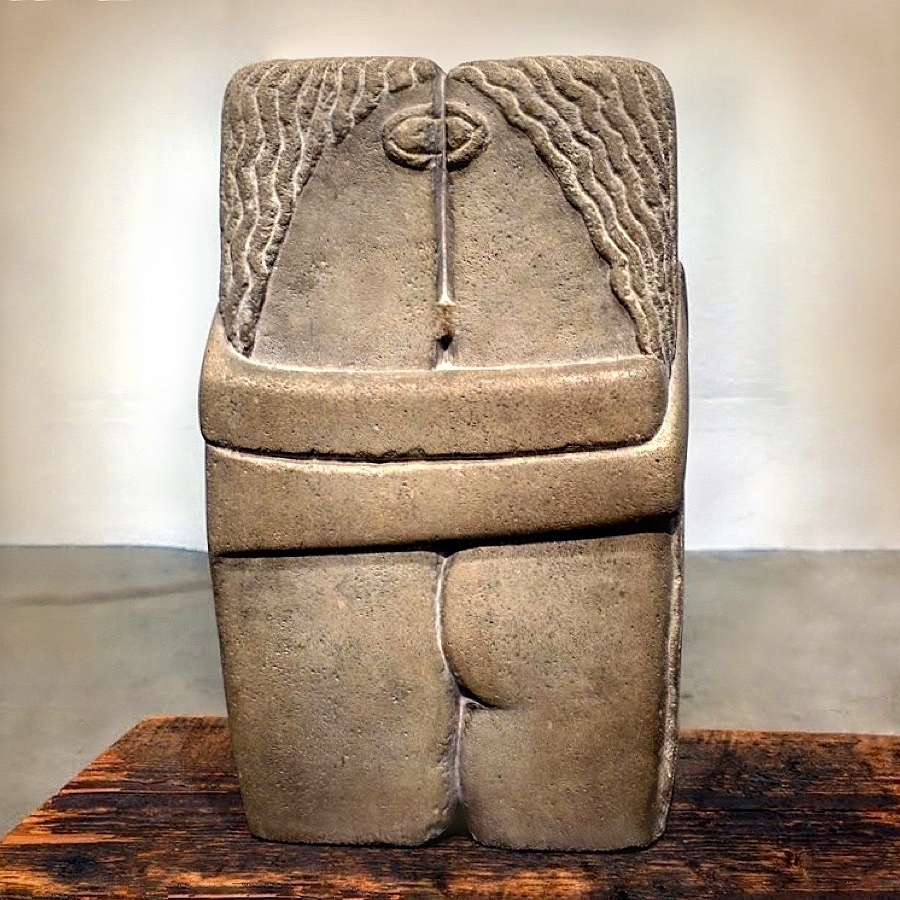 In the Old English Rune Poem, Ing is specifically masculine pronoun male. He’s a boy. But where Ing came from amongst the East Danes of what is now eastern Denmark and Southern Sweden, Ing appears to be a deity who was sometimes male, sometimes female, sometimes both at once. This is not uncommon, there are crowds of intersexed deities in world belief systems. I was going to list them. I don’t have enough space. But anywhere we look, there they are, including if we look toward Ing’s people. We have to look close, we have very little to go on.
In the Old English Rune Poem, Ing is specifically masculine pronoun male. He’s a boy. But where Ing came from amongst the East Danes of what is now eastern Denmark and Southern Sweden, Ing appears to be a deity who was sometimes male, sometimes female, sometimes both at once. This is not uncommon, there are crowds of intersexed deities in world belief systems. I was going to list them. I don’t have enough space. But anywhere we look, there they are, including if we look toward Ing’s people. We have to look close, we have very little to go on.
We also have to look at Ing’s people at the wrong times which is always tricky. Ing is called Ing in the Rune Poem, which was most likely written down in the 600’s but is probably several hundred years older than that. The runes themselves are certainly older. When Ing is called Ing in the … More
Th is for Ye
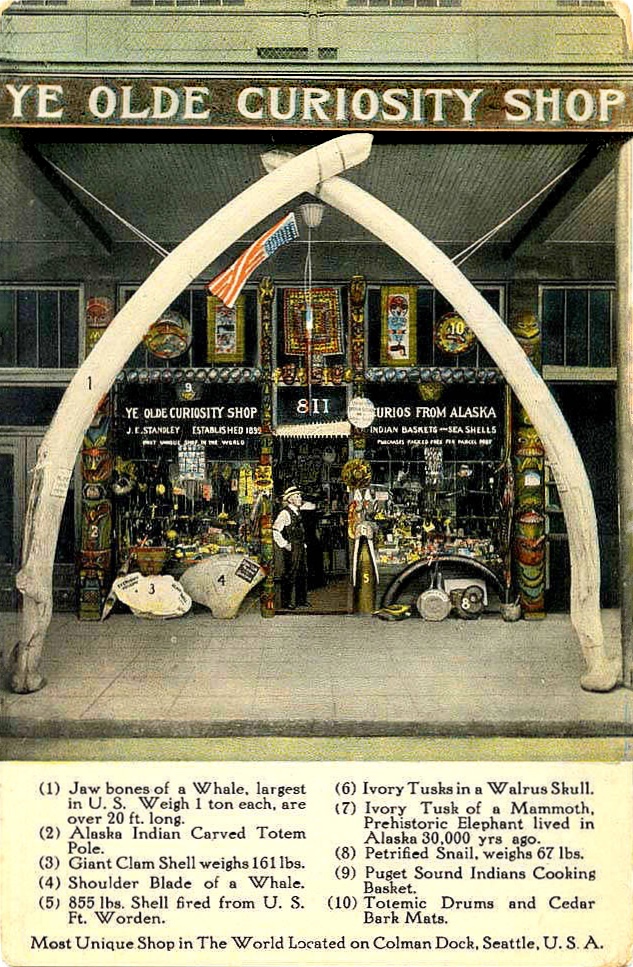
Ye old. Ye olde. Ye Olde Curiosity Shop. Olde is an affected way to make the word old look old. Olde looks old but it’s really not.
Why add the E to the end of old? An E on the end of an Old English word makes it subjunctive: it might be old, maybe it’s old. Or it makes the word a plural adjective. Multiples of old. Olds. Old squared.
Ye Olds Curiosity Shop. In Old English “ye” which looked like “ðe” (there was no Y in Old English) used to be strictly nominative plural. Y’all with me? Then it morphed to personal pronoun: second person dative singular. To you. I say this to you, Olds Curiosity shop. Old2 Curiosity Shop, this is for you.
And. Also. Sometimes “ye” is a conjunction. You’d find it in pairs spelled with one of the letters that became g: Ȝ ȝ or Ᵹ ᵹ. Thats an upper … More
Bad Idea
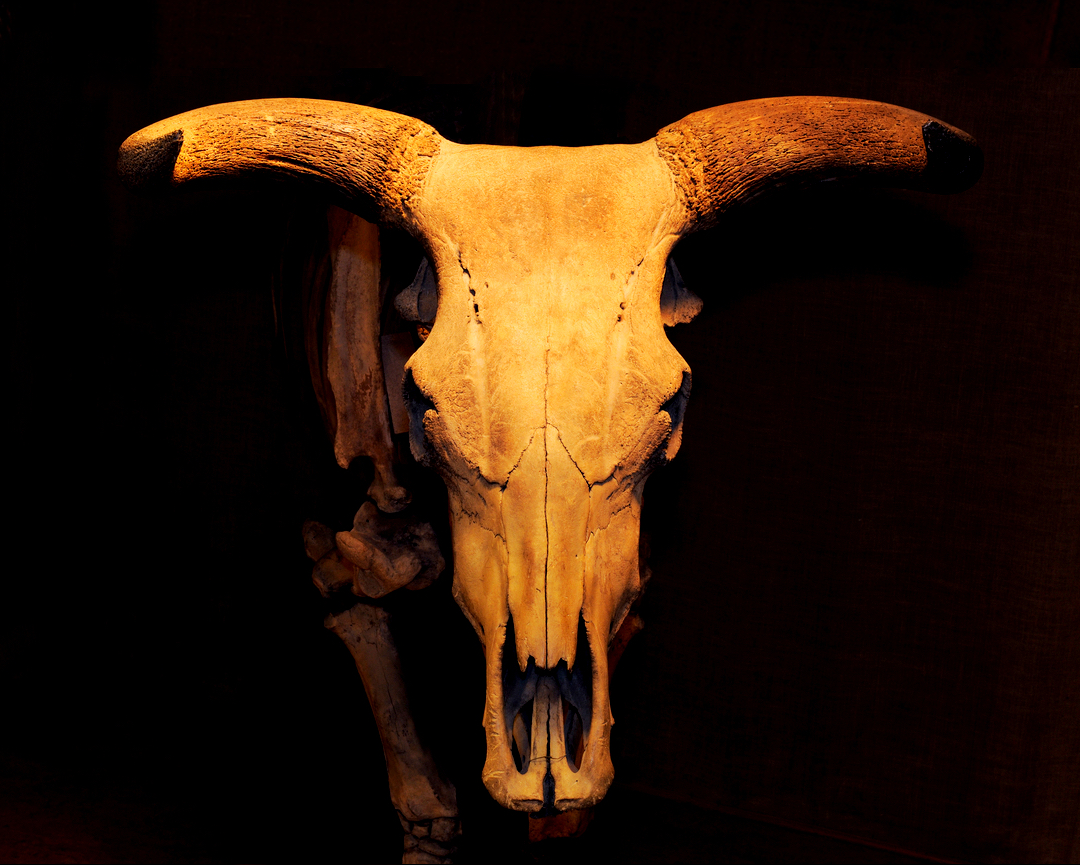 Human culture boasts a storied history of bad ideas, of which there are true gems and many favorites. Filling the Hindenburg with hydrogen, there’s one. Napoleon invading Russia in winter. It’s probably a bad idea to do anything in Russia in winter, but in particular don’t walk an army across it when winter is coming. A little foresight might have helped there. Communication. NASA didn’t communicate with Lockheed Martin enough and lost a Mars orbiter because half the team used metric and the other half imperial. That expensive cutting edge engineering and science is out there in space even now, floating around god knows where. That’s more of a blunder than a bad idea, but it’s a bad idea not to check with each other, hey what measurement system are you using? Takes no time. The French didn’t check first either. You need to check first before building a nice roomy expensive super train. Don’t … More
Human culture boasts a storied history of bad ideas, of which there are true gems and many favorites. Filling the Hindenburg with hydrogen, there’s one. Napoleon invading Russia in winter. It’s probably a bad idea to do anything in Russia in winter, but in particular don’t walk an army across it when winter is coming. A little foresight might have helped there. Communication. NASA didn’t communicate with Lockheed Martin enough and lost a Mars orbiter because half the team used metric and the other half imperial. That expensive cutting edge engineering and science is out there in space even now, floating around god knows where. That’s more of a blunder than a bad idea, but it’s a bad idea not to check with each other, hey what measurement system are you using? Takes no time. The French didn’t check first either. You need to check first before building a nice roomy expensive super train. Don’t … More
Byþ
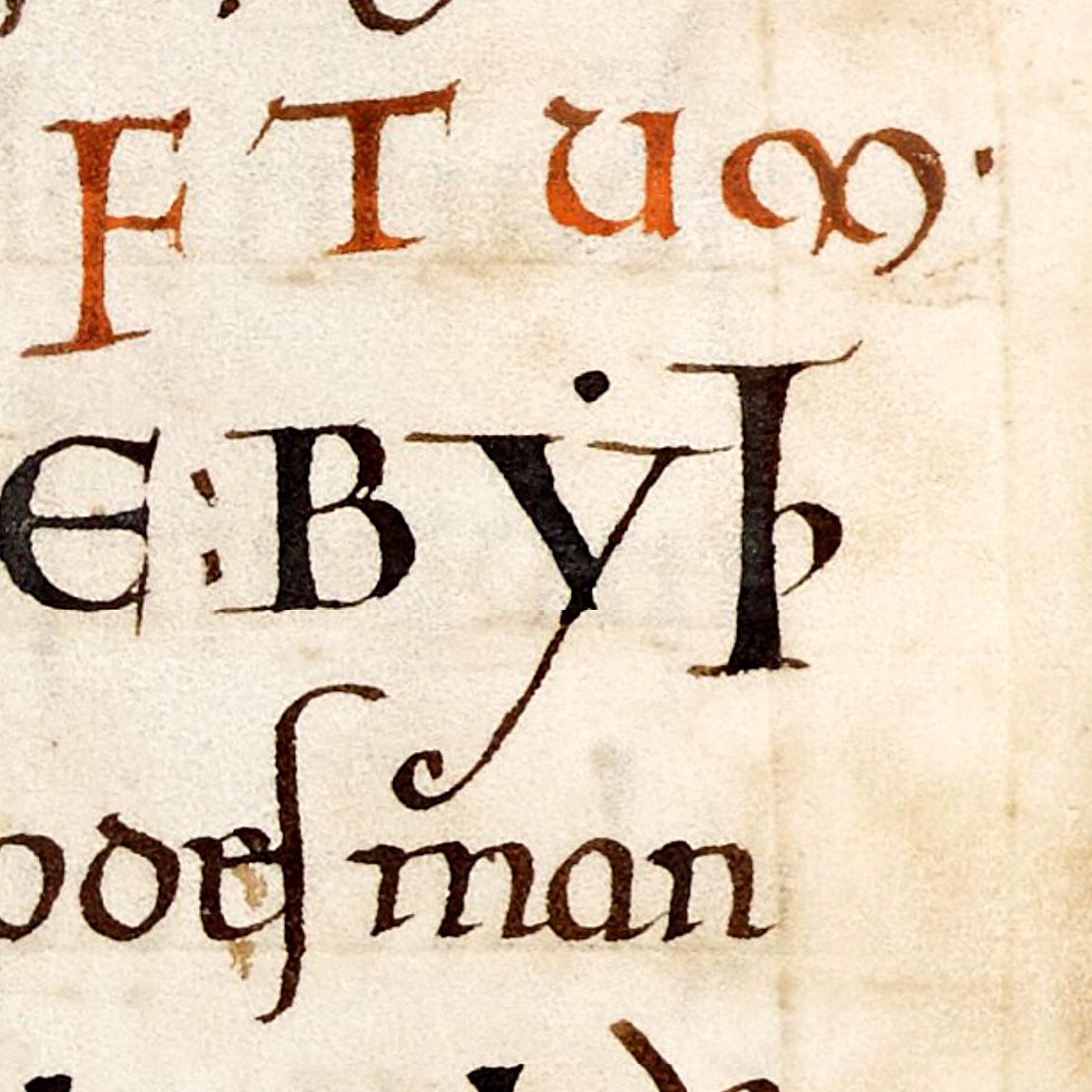 Remember your future, what you thought it would be. Put yours in mind, it’s different for different people. You know that, obviously, but I’m not talking about individual people. I mean groups of people, peoples, whole societies of people past and present. They way we think about future and what the rune carvers thought about it is not the same. To find the difference, if you want to know the root and the soul of a culture’s sense of future, get right up close to one specific word, and take an embarrassing long look. Make you both blush. Be. That’s the word. To be. This is the word for reality, and the way this word is treated always reveals a culture’s idea of temporality, and so much more. Be means existence, which precedes essence so some philosophers say, that we are neither nature nor nurture, but something foundational to both. This is true for people … More
Remember your future, what you thought it would be. Put yours in mind, it’s different for different people. You know that, obviously, but I’m not talking about individual people. I mean groups of people, peoples, whole societies of people past and present. They way we think about future and what the rune carvers thought about it is not the same. To find the difference, if you want to know the root and the soul of a culture’s sense of future, get right up close to one specific word, and take an embarrassing long look. Make you both blush. Be. That’s the word. To be. This is the word for reality, and the way this word is treated always reveals a culture’s idea of temporality, and so much more. Be means existence, which precedes essence so some philosophers say, that we are neither nature nor nurture, but something foundational to both. This is true for people … More


